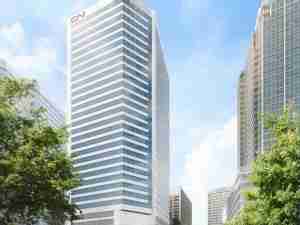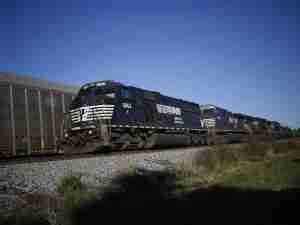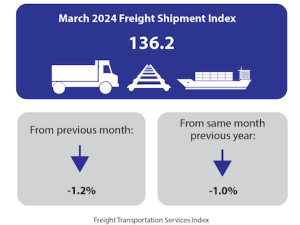The 40 public health, environmental, community, labor and faith-based organizations united in the Coalition for Clean & Safe Ports vowed to use every legal and political option to prevent efforts by the American Trucking Association.
'While the hired guns high-five one another, my kids gasp for air,' said Alicia Carrera, a Long Beach mother of three asthmatic children. 'This is more dirty tricks from a shameless industry that has bullied its way around our backyard for too long.'
Environmentalists agree that harbor-area children, port workers and Southern California residents have breathed easier since the programs went into effect last October and that shelving any component would have dire impact on public health, safety and security.
Although the ATA claimed harm, some of their member companies jumped in to the port drayage market precisely because of the existence of the Clean Trucks Programs, and several CEOs actively lobbied at the federal level to ensure key provisions moved forward.
Furthermore, President Barack Obama, Speaker of the House Nancy Pelosi, CA Senators Barbara Boxer and Dianne Feinstein, and the entire state Democratic delegation in Congress lauded L.A.'s green-growth policy for its potential to stimulate good job creation, spur environmentally-sound future expansion, and create a level-playing field for companies to compete.
In order to meet state air regulations, save lives and pave the way for future growth, the Port of L.A. was compelled to dramatically reduce truck emissions within five years by adopting a 'concession model' that relied on powerful financial incentives and rebates to assist businesses large and small to take responsibility for fleet turnover.
'The Los Angeles Harbor Commission, City Council, and Mayor Villaraigosa did the right thing in passing a comprehensive, sustainable Clean Trucks Program,' said Colleen Callahan of the American Lung Association of California. 'Not only do public health advocates support it, economists agree it will boost the regional economy and help responsible companies compete at a time when we need it the most.'
The ATA fought the new standards, including the Port of Long Beach's minimal concessionaire requirements that were widely viewed as friendly to the worst actors in a highly polluting industry. Clean air, they argued, was a perfectly good goal provided that individual workers behind the wheel of the trucks ' not those who profit from goods movement ' had to pay the cost of cleaner commerce.
If an injunction is obtained it could put into question how the ports will meet air regulations to prevent new cases of asthma, respiratory illness and death ' and who will pay for it ' until the full case goes to trial.
'This decision places in jeopardy the clean-air goals at the ports, as well as every port infrastructure expansion project that relies on clean trucks,' said attorney David Pettit of the Natural Resources Defense Council, which successfully sued the Port of Los Angeles in 2001 alongside community groups, forcing the harbor commissions of the San Pedro Bay to get serious about clean-up. 'We are going to vigorously fight to protect these truck plans in court.'
NRDC has argued it is imperative for trucking companies to assume the responsibility for owning green trucks because they are in the best position to maintain the cleanest available technology, as underpaid 'independent' drivers lack the stability or capital to assume the burden. Port drivers take home on average $29,000 a year, a figure derived before the recession caused cargo volume








